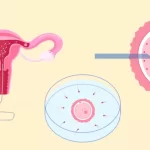Most time, when you are practicing sex, most people don’t get tested or use protection. With the increased population, STIs have become common, with around 26 people contracting infections yearly. Whenever you suspect you are infected with STI, taking the necessary steps to safeguard yourself is crucial. Some STIs can be very severe and lead to dangerous health complications that can be hard to reverse. This article will outline the essential steps to take when you suspect you have STI.
- Start by Getting Tested
Sometimes assumptions might be valid or wrong. Some STIs take time before the symptoms show up, and assuming you are STI-free can be very dangerous. Knowing your STI status helps you to plan and take the proper steps before the situation gets out of hand. This is why you should seek STD testing services to ensure your status and confirm if you are infected. When you go to the hospital, ensure you tell the doctor why you think you have STI and the time you think you contracted the infection. It’s also vital to inform your doctor if you have been tested. STI is a correction of different sexual infections, requiring different time periods before you get the results.
Before going for a test, there is a window period between the time you got exposed to the disease and the time you get the result. If you get tested prematurely during this period, there is a high chance your STI result will be negative. With HIV, you need to do a repeat test even after the first test to confirm the results. Knowing your status and the type of infection is an excellent start to getting treated.
- Consider Treatment
You should take the recommended treatment when confirmed to have a bacterial STI or virus infection. Failure to take the medication s prescribed increases your risk of getting an antibiotic infection which can be very tricky to cure. Most people have STIs such as gonorrhea, which has led to antibiotic-resistant bacteria. An example of STI is gonorrhea, which is currently resistant to antibiotics such as macrolides, fluoroquinolones, tetracyclines, and penicillins. You and your partner must abstain from sex until you are through with the treatment to avoid contracting the infection again.
If you are infected with an incurable viral STI like HIV, HSV, or HPV, you must talk to your doctor to help educate you on how to manage the condition. It’s also crucial to consider lowering the risk to avoid passing the infection to your partner.
- Share The Diagnosis Information with Your Partner
Whenever you are diagnosed with an infection, you must ensure you share the information with your partner to let them know they might be exposed to it. This way, they can seek help, and you can get treatment if the infection is treatable. However, in the case of HIV, you can talk to a doctor, who will direct you on the best measures to take. However, most infections are notifiable, and the doctor is required to inform your partner about the infection. This infection includes HIV, Syphilis, Gonorrhea, and Hepatitis.
Bottom Line!
When you suspect you have an STI follow the above steps to ensure, you protect yourself and your loved one. Always try to practice safe sex and take medication as the doctor recommends.
































































